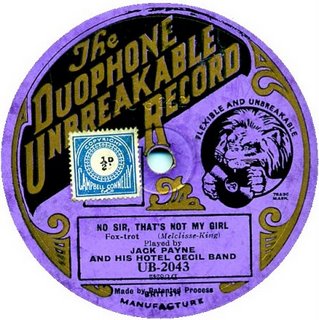
The "Wise Use" movement has spent the last couple of decades arguing that every American has a God-given right - if not a duty - to mow down the wilderness in off-road vehicles. Which makes this story both droll and heartening:
Snowmobile use in Yellowstone National Park -- long a bone of contention between aficionados of motorized snowsleds and environmentalists -- has taken an inexplicable plunge, according to a story last week in the Star-Tribune of Casper, Wyo.If you liked that, you’ll love this:
The story, widely distributed this week by the Coalition of National Park Service Retirees, says snowmobiles entering Yellowstone have dropped from a peak of 60,000 per season in the 1990s to 10,000 by the winter of 2004-05.
Associate Professor Michael King of the University of Rochester Biomedical Engineering Department has invented a device that filters the blood for cancer and stem cells. When he captures cancer cells, he kills them. When he captures stem cells, he harvests them for later use in tissue engineering, bone marrow transplants, and other applications that treat human disease and improve health.Furthermore, environmentalists and hunters are working together to shut down captive elk ranches:
The unlikely bedfellows of animal-rights and hunting groups again are taking a collective run at closing Oregon's captive elk-ranching industry over fears the exotic herds threaten wild elk populations….Perhaps Der Kulturkampf is running out of steam. (Or methyl bromide, or whatever it runs on.)
"We'd like to see them out of business entirely because the threat to wildlife is so high," says Jan Wilson, a Eugene attorney and member of the coalition, which includes the Humane Society of the United States as well as the Oregon Hunters Association and several preservation groups.
Three men in Florida have launched a nonprofit called the Green Armada Foundation in order to keep coastal waterways clean:
The boat travels to local bridges and causeways and anchors in full view of passers-by. Maksimowicz and his crew, wearing plastic boots and gloves, pick up litter one piece at a time and haul it away.They're looking for sponsors, and hoping to to go statewide. If you're inclined, you can help them out by clicking here.
They say they collected eight tons of litter in two months.
Professor Bunyan Bryant, of the University of Michigan, is putting his money where his mouth is on environmental issues:
Bryant, 71, believes in his work so strongly that he announced this fall that he will donate $100,000 over the next five years to the university to teach more students about environmental justice issues.And Rorschach is impressed with the OpenCourseWare movement:
With a goal of raising $14 million in endowments, Bryant hopes to create a center and fund a chairmanship and number of scholarships devoted to the study of environmental justice issues.
By the end of this year, the contents of all 1,800 courses taught at one of the world's most prestigious universities will be available online to anyone in the world, anywhere in the world. Learners won't have to register for the classes, and everyone is accepted.Business Week has a nice story on microinsurance in Mexico:
The cost? It's all free of charge.
Just as Mexico's microfinance lenders have carved out a lucrative niche making tiny loans to some of the country's smallest entrepreneurs, a handful of insurers are proving that it can be profitable to sell life insurance to the country's working poor and lower-middle class.In a pleasing display of sanity, a German engineer has decided not to convert a British power plant to run on rainforest-sourced palm oil:
"The issue isn't that the population doesn't have the economic capacity, disposable income, or an insurance culture, rather we as insurance companies need to adapt to their means," said Alfredo Honsberg, chief executive of insurance company Seguros Azteca, in an interview.
The decision by RWE power to scrap the project at its Littlebrook plant in Dartford, Kent, which was seen as a test case for palm oil as an alternative energy source, comes after it was unable to secure sufficient supplies without risking damage to tropical rainforest.A new sucker-footed bat has been discovered:
Scientists have discovered a new species of bat that has large flat adhesive organs, or suckers, attached to its thumbs and hind feet. This is a remarkable find because the new bat belongs to a Family of bats endemic to Madagascar--and one that was previously considered to include only one rare species.Uganda is experimenting with BTI, which is a comparatively safe mosquito-control agent produced by the soil bacterium Bacillus thuringiensis israelensis:
The drug which is promoted by Xenorex, a Canada-based organisation, will be sprayed outdoors in mosquito breeding places like water bodies and footmarks, while DDT will be used indoors, according to the Ministry of Health.Speaking of Canada, Port Moody, BC banned the use of pesticides on private land a year ago. No reports yet of people living in caves, eating their pets, or seeking medical advice from bloodletters.
A bill introduced in the Kentucky legislature would make it mandatory for young girls to be vaccinated against the virus that causes cervical cancer. The usual people are making the usual objections, which you can be quite certain will backfire.
If we must have nuclear plants, we may as well make them safer and more efficient:
By reconfiguring nuclear-fuel pellets into "doughnuts", scientists from the Massachusetts Institute of Technology (MIT) have found a way to boost the amount of energy that nuclear reactors produce by 50%. The new design also helps diminish the chance of meltdown by slashing the temperature at which reactors must be operated, and it renders the spent fuel more proliferation-resistant.A British satellite navigation system allows drivers to pick the most fuel-efficient route:
Where existing devices find the most direct or fastest route between two points, the new system plots the most fuel-efficient route by checking roads for traffic lights, junctions, speed limits and the tendency for traffic jams. Early tests suggest that taking more eco-friendly routes cut motorists' average fuel usage by 8.2%.I’m not sure about this idea for everyday motorists, but it could be very handy for truck lines and delivery services. It’s interesting, at any rate.
Speaking as someone who hasn’t bought a new piece of clothing in about 25 years, I enjoyed this article on Americans who’ve vowed not to buy anything new in 2007:
The two-principle Compact - named loosely after the Mayflower Compact and referring to living for the greater good - challenges participants to first, forego the purchase of new products, and, second, to get what they need by borrowing, bartering or buying used.I was pleased to learn of the discovery of two telescopes made of rolled paper and ground glass, which date to the early 1600s. But it pales in comparison with this description of the electrical diablerie served forth in 1884 by William J. Hammer of Newark, NJ (link via Things):
The ceiling was found to be covered with luminous stars, arranged to represent the principal constellations in the heavens - while comets, moons, etc., shone beautifully in the dark. By placing one's head on the pillow, the gas, fifteen feet away, would be extinguished and the phosphorescent stars on the ceiling would shine forth weirdly, and a phosphorescent moon rose from behind a cloud over the mantel and slowly describing a huge arch disappeared behind a bank of phosphorescent clouds on the other side of the room….Also via Things comes an unbelievably beautiful gallery of photos of Paris during the flood of 1910.

This reminds me of Alain Resnais’ apocryphal book of photographs of locations used in the films of Louis Feuillade, which I’ve been hunting after for twenty years (along with the equally apocryphal English translation of Kircher’s Musurgia Universalis, whence comes the illustration at the top of this post). If you have a spare copy of either book, or information about whether or not they actually exist, I hope you’ll send it along, even though I can’t give you anything but love.
Speaking of Feuillade, whatever happened to the Chronophone discs made by Cyclophone for his 1909 film Les Heures? I have no idea, but my attempt to answer the question led me to a bumper crop of phonographic sites and sound archives.
The Flexible Records Project compiles labels from 1930s acetates and metal discs. Lots of gorgeous stuff, as thus:

And thus:

Little Wonder Records is another gorgeous site; it also features sound clips. Or you can visit Australian Collectors of Mechanical Musical Instruments, and listen to a variety of early gramphones and phonographs.
The Marr Sound Archives has couple of great online exhibitions: The Voices And Music Of World War I, and Musicians Local No. 627 and the Mutual Musicians Foundation.
The Internet Chinese Music Archive is…well, pretty much what it sounds like. It’ll take you a while to work your way through it. When you’re done, you can tackle the Judaica Sound Archives . Or the Berea College Appalachian Sound Archives, which offers “fiddle and banjo tunes; ballads and songs; Old Regular Baptist singing and preaching; folktales and legends; and oral history.”
If that’s too much for you, you can focus exclusively on the nyckelharpa, courtesy of The American Nyckelharpa Association.
Then again, it’s possible you’re not interested in any of this stuff. In which case, you may proceed directly to Seedtime and Harvest, a film from the Hampshire Record Office.
UPDATE: Spocko Speaks!
2 comments:
I am going to Paris in April, I will keep an eye out for "Alain Resnais’ apocryphal book of photographs". Fingers crossed.
...that Kircher book is insane.
Post a Comment